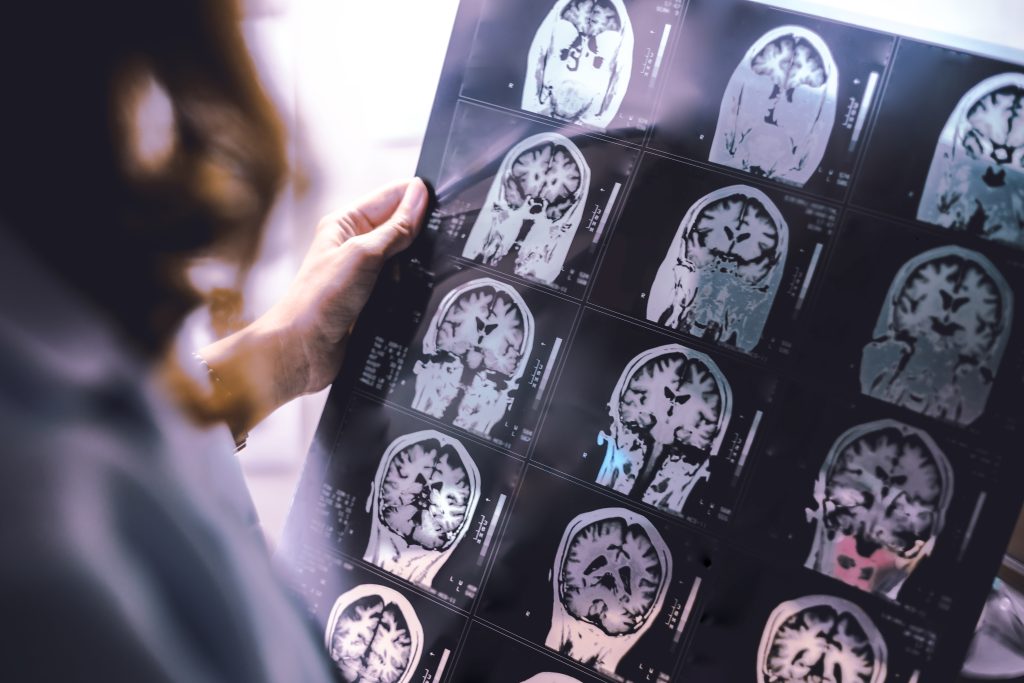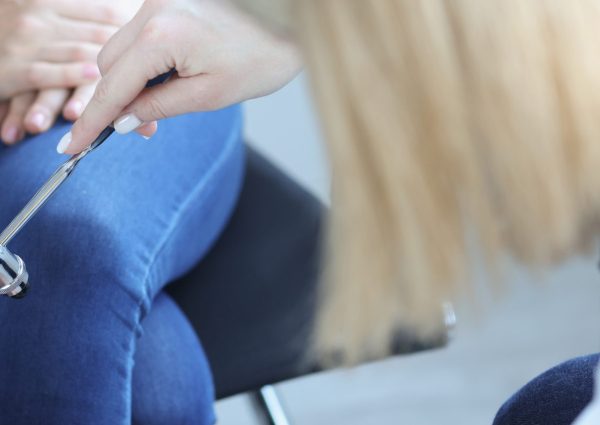Neurology

Team of Local Neurologists
Our team of leading neurologists in the Utica, NY, area is specially trained to diagnose and treat diseases and disorders of the nervous system. Their expertise addresses conditions affecting the brain, spinal cord, nerves, and muscles of the body.
What is Neurology?
Neurology is the study of disorders of the nervous system. Neurologists are trained to diagnose and treat neurological disorders. This includes conditions that affect the brain, spinal cord, nerves, and muscles. This includes conditions that affect the brain, spinal cord, nerves, and muscles. In addition to our neurology expertise, Slocum-Dickson also houses a state-of-the-art rehabilitation department. Our skilled rehabilitation team specializes in helping patients recover from neurological conditions, providing comprehensive care and support to improve their quality of life.
Procedures & Services
EEG/EMG evaluations
Vagal Nerve Stimulation
Botox Therapy for migraines
NCS studies
Evoked Potentials
Diagnosis and treatment for:
- Migraines, cluster headaches & tension headaches
- Epilepsy & seizures
- Degenerative disorders such as Alzheimer’s, Parkinson’s & ALS
- Stroke & transient ischemic attack
- Sleep disorders
- Cerebral palsy
- Infections of the brain and spinal cord
- Infections of the peripheral nervous system
- Altered mental states
- Tumors of the brain, spinal cord and peripheral nerves
- Parkinson’s, Huntington’s disease, hemiballismus, tic disorders & Tourette syndrome
- Multiple sclerosis, Guillain-Barre syndrome & chronic inflammatory disease
- Spinal cord disorders
- Peripheral nerve disorders
- Trauma to the brain, spinal cord & peripheral nerves
- Speech and language disorders
What is a Neurological Exam?
Neurologists use neurological exams to gain important information about the functioning of a patient’s nervous system. A typical exam can be divided into seven parts:
Mental Status – This exam portion tests cognitive abilities such as mental awareness, responsiveness, appearance, behavior, mood, thought processes, comprehension, attention span, memory, judgment, reasoning, speech, and language.
Cranial Nerves – This set of 12 pairs of nerves is used to transmit messages to and from the brain to the body. They work to control motor and sensory functions such as vision, smell, and movement. Examining the cranial nerves helps the neurologist identify central nervous system dysfunctions.
Motor System – The neurologist examines muscle strength and tone in order to identify abnormalities in the motor pathways of the brain, spinal cord, nerves, and muscles throughout the body.
Sensory System – This portion of the exam is used to discover abnormalities in the patient’s sensory response. The receptors of the skin and muscles are stimulated by pain, temperature, pressure, or position to assess whether or not the sensation is transmitted normally through the nerve fibers.
Deep Tendon Reflexes – The neurologist will test the patient’s involuntary reflex response. Altered reflexes can often be the first sign of a neurological disorder.
Coordination – Coordination is directly controlled by the portion of the brain called the cerebellum. Testing coordination can reveal a problem in the cerebellum.
Gait – Gait describes the way a person walks. Since so many neurological functions are involved in walking, neurologists will observe a patient’s gait to help them make a diagnosis.
Neurological Tests
Patients will often have to undergo certain neurological diagnostic tests to detect neurological disorders. Some commonly used tests include:
Computer-Assisted Tomography (CAT Scan)
This is a type of x-ray that is used to create two dimensional digital images of structures in the body.
Magnetic Resonance Imaging (MRI)
MRI uses magnetic fields and radio waves to capture images of the brain & spinal cord.
Electroencephalogram (EEG)
Electrodes are attached to the scalp and used to diagnose seizure or loss of consciousness.
Electromyogram (EMG)
This test is conducted by placing needles into the muscle and recording their electrical activity.
Nerve Conduction Velocity (NVC) Test
The NVC test can help recognize when the nerves are not properly transmitting signals to the muscles. Electrodes are used to stimulate the nerves.
Evoked Potentials
This functional test examines the cause of sensory problems by using visual, auditory and tactile stimuli.
Cerebral Spinal Fluid Analysis
Sometimes referred to as a “spinal tap”, this test uses a thin needle to extract fluid from the spine. The fluid is analyzed to reveal bleeding, hemorrhage, infection or other disorders.

